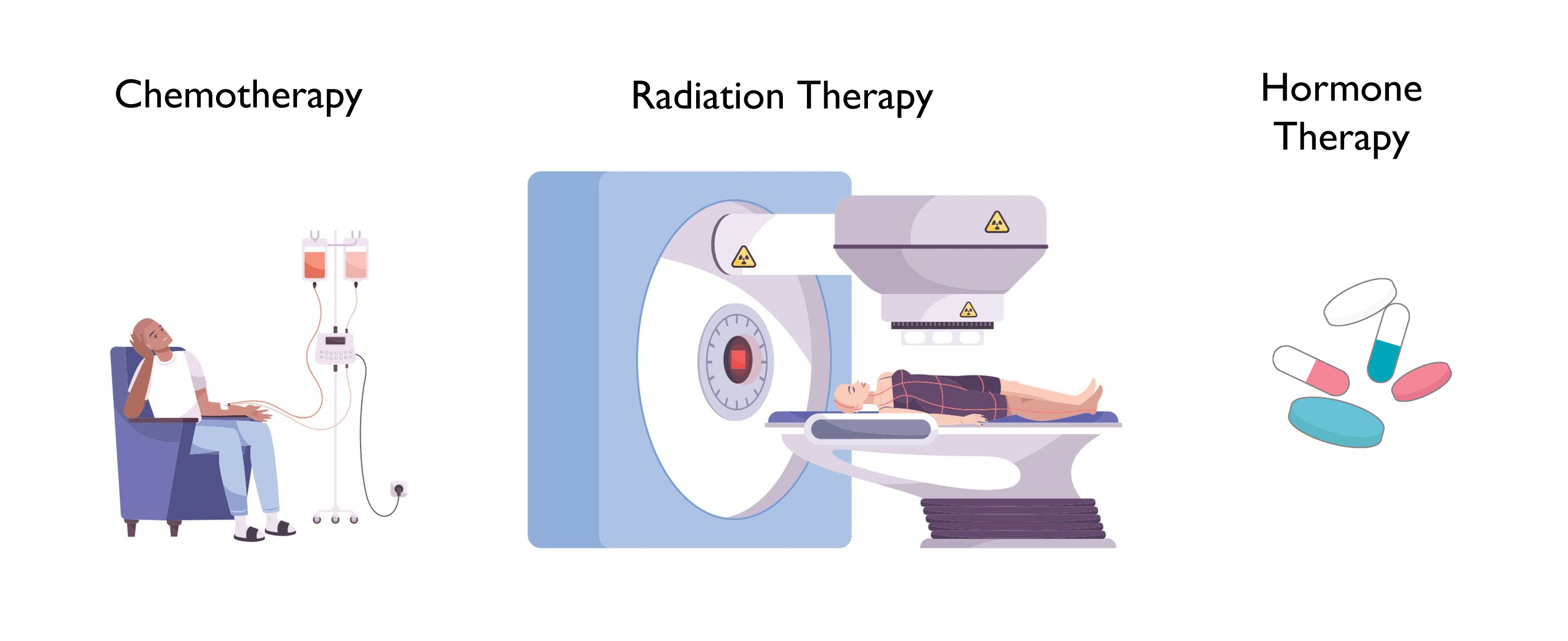It is possible to develop diabetes during and after cancer treatment, and depending on the treatment used, the two are often associated.
Chemotherapy
Chemotherapy can increase risk of developing type 2 diabetes mellitus (T2DM) during the treatment course due to its effects on the endocrine system. Many chemotherapeutic treatments increase glucose levels, particularly those that involve glucocorticoids.1
A literature review examining the effects of various chemotherapeutic agents on endocrine complications in pediatric patients with acute lymphoblastic leukemia found that about 1% of patients treated with either glucocorticoids or l-asparaginase develop hyperglycemia (n=4, 5, 136, 1, 14, 100), but that combination therapy synergistically increases glucose intolerance.2 One study cited in the review of 421 pediatric patients receiving both prednisone and l-asparaginase found that 41 (9.7%) patients developed hyperglycemia.3
Persistent hyperglycemia and insulin resistance are common following chemotherapy, even after treatment is concluded. A systematic review described a T2DM incidence rate of 17 per 1,000 person-years after chemotherapy for colorectal cancer.4 In another study, 49 (11.6%) of 422 patients developed T2DM after a 5-fluorouracil-based chemotherapy regimen for the treatment of colorectal cancer.5
Radiation Therapy
A study of testicular cancer patients found that out of 379 patients who received para-aortic radiotherapy, 134 (35.4%) developed T2DM compared to 27 of 196 (13.8%) patients who did not receive radiotherapy (hazard ratio [HR] 1.66, 95% confidence interval [CI][1.05-2.62]).6
Hormone Therapy
A case-cohort study (n=2,246) that investigated the link between hormone therapy for breast cancer and development of T2DM found a 3% higher absolute rate of developing diabetes after hormone therapy compared to no hormone therapy (HR 2.40, 95% CI [1.26-4.55], p=0.008).7 Another study using a population-based health database in Ontario, Canada found that of 14,360 breast cancer survivors of mean age 75 years, 1,445 (10%) developed T2DM after receiving tamoxifen therapy.8 Patients actively receiving tamoxifen therapy were at an increased risk of developing T2DM compared to those not receiving tamoxifen therapy (adjusted odds ratio 1.24, 95% CI [1.08-1.42], p=0.002). Out of the 1,445 new T2DM cases identified, 733 were either currently or previously taking tamoxifen and 712 had no previous use of tamoxifen, meaning there was a 2% absolute risk increase of developing T2DM after treatment with tamoxifen.
One observational cohort study examined incidence of T2DM and cardiovascular disease (CVD) in men diagnosed with prostate cancer who received androgen-deprivation therapy (ADT), with exclusion criteria for participants with preexisting T2DM or CVD (without exclusion criteria, n=13,620; with, n=11,381). Treatment with gonadotropin-releasing hormone (GnRH) agonist therapy was associated with a statistically significant increased risk of developing T2DM, with 36.1 events per 1,000 person-years (95% CI [32.8-29.3]) vs 21.1 events per 1,000 person-years for those who didn’t receive ADT (95% CI [20.0-22.3]).9
Another study examining retrospective data from the Longitudinal Health Insurance Database of Taiwan found that the incidence of new onset T2DM for patients receiving ADT for prostate cancer was 27 per 1,000 person-years.10 In the 4,604 men who received ADT, 512 (11.1%) developed diabetes, whereas in the 4,604 men who did not receive ADT, 297 (6.4%) developed diabetes, meaning there was a 5.5% increased absolute risk for developing diabetes while receiving ADT.
Shared Risk Factors
The same risk factors that increased risk for developing cancer also increase risk for developing diabetes. Obesity, poor diet, and a sedentary lifestyle are all associated with increased risk for both cancer and diabetes.5,11 Therefore, some patients who develop diabetes following cancer may not have experienced risk from the cancer itself or its treatments. Additionally, for cancer treatments not listed above, such as surgical intervention, there is no evidence of increased risk of development of T2DM.
References
- Lee YN, Chowdhury TA. Diabetes: an Overview for Clinical Oncologists. Clin Oncol (R Coll Radiol). Sep 2020;32(9):579-590. doi:10.1016/j.clon.2020.03.012
- Howard SC, Pui CH. Endocrine complications in pediatric patients with acute lymphoblastic leukemia. Blood Rev. Dec 2002;16(4):225-43. doi:10.1016/s0268-960x(02)00042-5
- Pui CH, Burghen GA, Bowman WP, Aur RJ. Risk factors for hyperglycemia in children with leukemia receiving L-asparaginase and prednisone. J Pediatr. Jul 1981;99(1):46-50. doi:10.1016/s0022-3476(81)80955-9
- Stava CJ, Jimenez C, Vassilopoulou-Sellin R. Endocrine sequelae of cancer and cancer treatments. J Cancer Surviv. Dec 2007;1(4):261-74. doi:10.1007/s11764-007-0038-6
- Joharatnam-Hogan N, Carter TJ, Reynolds N, Ho JH, Adam S, Board R. Diabetes Mellitus in People with Cancer. In: Feingold KR, Anawalt B, Boyce A, et al, eds. Endotext. MDText.com, Inc.Copyright © 2000-2023, MDText.com, Inc.; 2000.
- Groot HJ, Gietema JA, Aleman BMP, et al. Risk of diabetes after para-aortic radiation for testicular cancer. Br J Cancer. Oct 2018;119(7):901-907. doi:10.1038/s41416-018-0248-x
- Hamood R, Hamood H, Merhasin I, Keinan-Boker L. Diabetes After Hormone Therapy in Breast Cancer Survivors: A Case-Cohort Study. J Clin Oncol. Jul 10 2018;36(20):2061-2069. doi:10.1200/jco.2017.76.3524
- Lipscombe LL, Fischer HD, Yun L, et al. Association between tamoxifen treatment and diabetes: a population-based study. Cancer. May 15 2012;118(10):2615-22. doi:10.1002/cncr.26559
- Keating NL, O'Malley AJ, Freedland SJ, Smith MR. Diabetes and cardiovascular disease during androgen deprivation therapy: observational study of veterans with prostate cancer. J Natl Cancer Inst. Jan 6 2010;102(1):39-46. doi:10.1093/jnci/djp404
- Jhan JH, Yeh HC, Chang YH, et al. New-onset diabetes after androgen-deprivation therapy for prostate cancer: A nationwide propensity score-matched four-year longitudinal cohort study. J Diabetes Complications. Jul 2018;32(7):688-692. doi:10.1016/j.jdiacomp.2018.03.007
- Giovannucci E, Harlan DM, Archer MC, et al. Diabetes and cancer: a consensus report. Diabetes Care. Jul 2010;33(7):1674-85. doi:10.2337/dc10-0666

